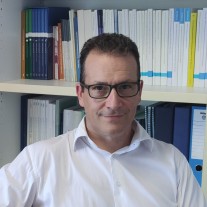Education and Training Series #96: Lead-cooled Fast Reactor (LFR) Development – Status & Perspectives
Part of a webinar series hosted by the GIF Education and Training Working Group since 2016. You will find the registration link for this webinar just below the text in the section "about this webinar".
Who should attend?
Policymakers, industry professionals, regulators, researchers, students, the general public.
Register to the GIF ETWG - Education and Training Series - Webinar 96 by following the link below.
About the "GIF Education and Training" Webinars
These webinars, organised by the GIF Education and Training Working Group are streamed live monthly. The recordings and slide decks are accessible after the webinar on this website. These webinars cover a very broad range of technical and policy related topics. At the end of 2023 they have been viewed by more than 15000 people (approximately half of the views during the live streams and the other half views being of the archives on the public GIF website). In total, the GIF webinars have reached Generation IV enthusiasts, scientists, and engineers in more than 80 countries.
These webinars are organised and hosted by the GIF Education and Training Working Group (ETWG).
About this Webinar
The LFRs (lead-cooled fast reactors) are considered one of the most promising technologies to meet the requirements introduced for GEN IV nuclear plants and they are being studied worldwide.
Sustainability - fast-neutron spectrum make possible an efficient utilization of fuel with a reduction of the high radiotoxic waste thanks to a close fuel cycle.
Safety and Reliability - primary loop operating at atmospheric pressure, high shielding capability against gamma radiation of lead, core with low pressure drops, capability to remove the decay power in natural circulation regime with a consequent reduction of the active safety systems. No risk of fuel compaction and subsequent achievement of critical conditions in case of core melting.
Resistance to the Proliferation and Physical Protection - The MOX (Mixed Oxide Fuel) used contains actinides and it makes these systems unattractive for the extraction of weapon-usable materials. After all, the nuclear properties of the coolant can allow the realization of cores with a long life and not useful for the production of weapon-grade plutonium.
Economy - The simple design reduces the building time, the capital cost and the operation and maintenance cost in order to offer a competitive price of the electricity generated.
Research activities related to the lead technology development are ongoing worldwide. Industries are involved boosting the technological development of LFRs targeting the market in next years.
The webinar aims at highlighting the status and perspectives of LFR development worldwide, the strong involvement of the industries, the contribution of the GIF LFR pSSC, which plays a relevant role to create a unique and international community on the LFR development.
Dr. Patricia Paviet from PNNL, USA, chair of GIF Education and Training Working Group (ETWG), will facilitate this webinar.
Presentation of the webinar
Meet the presenter

Dr
Mariano TARANTINO
Mariano Tarantino graduated in Nuclear Engineering at the University of Pisa in 2004. Ph.D. in Nuclear and Industrial Safety in 2008. Since 2008 he has been an ENEA researcher in the field of liquid metal technologies for nuclear applications, mainly related to Generation IV - LFR. From 2010 to 2018 Scientific Advisor of the Program Agreement between ENEA and the Ministry of Economic Development, where he coordinated all research and development activities on fourth generation nuclear fission systems refrigerated with liquid lead. Currently he is the head of Energy Nuclear Systems Division of the ENEA Nuclear Department, member of the Executive Board of FALCON Consortium devoted to ALFRED DEMO LFR construction, and member of the newcleo R&D steering committee, aiming at supporting the development of LFR-AS-30 and LFR-AS-200. With a background in thermos-fluid dynamics, expert in nuclear technology and lead cooled fast reactors, with an experimental vocation, he coordinates various projects at a national and international level. Among those international efforts Dr Tarantino is the Co-Chair of the Generation IV International Forum provisional Lead Fast Reactors System Steering Committee.